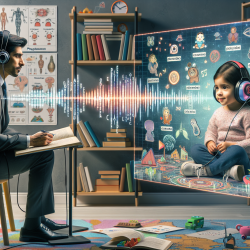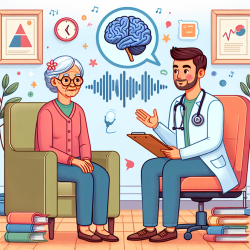Phonological disorders in children present unique challenges for speech-language pathologists (SLPs). Judith A. Gierut's research paper, "Linguistic Foundations of Language Teaching: Phonology / Fondement linguistique de l'enseignement du langage: la phonologie," offers significant insights into the nature of these disorders and how to address them in therapeutic settings. By understanding the phonological distinctions children must learn and how they organize phonological information in their mental lexicon, practitioners can enhance their online therapy practices.
Understanding Phonetic Distinctions
One of the primary goals of phonological theory is to identify universal patterns in sound systems. Gierut's research emphasizes the importance of teaching more marked (difficult) segments. Studies show that when children learn marked segments, they also acquire unmarked sounds, but the reverse is not true. For instance, teaching voiced stops to hearing-impaired children resulted in the acquisition of both voiced and voiceless stops, whereas teaching only voiceless stops did not lead to learning voiced stops.
Learning Phonemic Distinctions
Phonological oppositions, or the distinct features that differentiate phonemes, are central to understanding language acquisition. Gierut's research suggests that teaching sound pairs that involve maximal oppositions (differing by many features) leads to greater phonological improvement than minimal oppositions (differing by few features). For example, contrasting an obstruent with a sonorant can result in more widespread phonological changes than contrasting two similar sounds.
Organizing Phonological Information in the Mental Lexicon
Gierut's research also delves into how children with phonological disorders organize phonological information in their mental lexicon. She identifies five categories of phonological knowledge: ambient-like sounds, errored sounds due to misapplication of rules, positional constraints, emerging sounds, and excluded sounds. Understanding these categories can help SLPs tailor their interventions more effectively.
Applying Research to Online Therapy
Based on Gierut's findings, SLPs can improve their online therapy practices by:
- Focusing on teaching marked phonetic distinctions to facilitate broader phonological learning.
- Utilizing maximal oppositions in therapy sessions to enhance phonemic learning.
- Assessing and addressing the phonological knowledge of each child to target areas with the least knowledge for maximum impact.
By incorporating these research-based strategies, practitioners can create more effective intervention programs that cater to the unique needs of children with phonological disorders.
To read the original research paper, please follow this link: Linguistic Foundations of Language Teaching: Phonology / Fondement linguistique de l'enseignement du langage: la phonologie.










